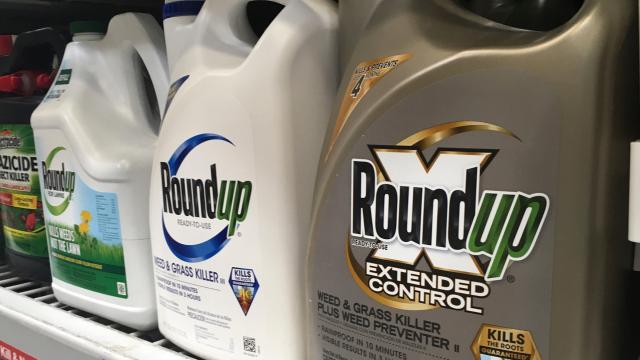A popular herbicide currently in use worldwide, but controversially linked to cancer, is on the verge of being outlawed in Austria — the first European Union country to attempt an outright ban.
Citing what the leader of the country’s Social Democratic party, Pamela Rendi-Wagner, called increasing “scientific evidence”, Austria’s lower house of parliament passed a bill on Tuesday banning the use of the weedkiller glyphosate, more commonly known by the brand name Roundup.
The Austrian bill faces little opposition in the parliament’s upper house and is likely to be signed by President Alexander Van der Bellen, Reuters reported.
However, the country’s sustainability and tourism ministry has suggested the bill might nevertheless be illegal under EU law, since glyphosate has already been cleared for use in the bloc until December 2022.
[referenced url=”https://gizmodo.com.au/2019/05/monsanto-loses-another-roundup-cancer-trial-with-jury-awarding-over-2-billion/” thumb=”https://i.kinja-img.com/gawker-media/image/upload/t_ku-large/tz7jrdqmlv6gcj6xyczd.jpg” title=”Monsanto Loses Another Roundup Cancer Trial, With Jury Awarding Over $3 Billion” excerpt=”Monsanto Co. lost a legal battle over its massively popular Roundup herbicide on Monday to the tune of $3 billion, with a jury in San Francisco ordering the court to pay out the stunning sum to a couple that said it caused their non-Hodgkin’s lymphoma.”]
Roundup was developed in the 1970s by the Monstanto Company, which has long defended the product against allegations of toxicity at normal levels of exposure. But in 2015, the World Health Organisation’s cancer-research arm, the International Agency for Research on Cancer (IARC), classified glyphosate-based herbicides as “probably carcinogenic to humans” based on studies conducted in animals and cell cultures.
While the World Health Organisation has faced backlash over its stance, its findings have been used nonetheless in successful lawsuits against Monsanto.
In May, a California Superior Court jury awarded an astounding $US2 billion ($2.8 billion) to a couple in Alameda County who claimed RoundUp caused their their non-Hodgkin’s lymphoma. (Bayer, Monsanto’s parent company, is appealing the ruling and, regardless, the final damages are likely to be significantly reduced.)
Similarly in March, a US federal jury in San Francisco ordered Monsanto to pay $US80 million ($114 million) to a California man with non-Hodgkin lymphoma. Around 11,000 similar cases are pending in the US at the federal or state level, CNN reported at the time.
In 2017, a long-term collaborative project of the National Cancer Institute, the Environmental Protection Agency and other independent health groups in the United States, known as the Agricultural Health Study, found no links between RoundUp and “any solid tumours or lymphoid malignancies overall, including non-Hogkin Lymphoma (NHL) and its subtypes”.
In 2017, an investigation by three Bloomberg reporters found that Monsanto had paid a consulting firm that had edited drafts of a supposedly independent study that determined the herbicide was safe. Bloomberg cited internal emails, released as part of a lawsuit, to demonstrate the company’s strong involvement in the paper.
Monsanto denied any wrongdoing, claiming that while it had paid the firm, Intertek Group Plc, the researchers themselves were not directly contacted by the company.
[Reuters]
